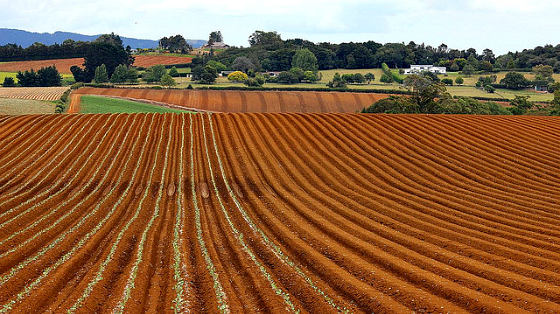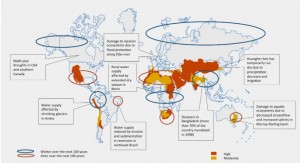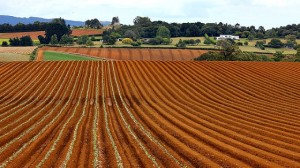January 21, 2014 – A new study done by Oxford University’s Smith School indicates that global farmland may take a financial hit amounting to as much as $8 trillion U.S. in land value should catastrophic climate change events occur with increasing frequency throughout the 21st century.
The kind of catastrophic events we are talking about include rising sea levels, prolonged drought, drying up of rivers, melting of alpine glaciers, unexpected monsoonal and other heavy rain events, floods, and the like.
The write down in farmland values runs counter to what we have witnessed over the last several decades. Today the value of all farmland real estate around the globe tops $14 trillion U.S. A drop of $8 trillion would wipe out well over half that amount. The study arrives at the $8 trillion number as representing a mean between the least and greatest impact.
The report entitled, Stranded Assets in Agriculture: Protecting Value from Environment-Related Risks, highlights the following physical and economic drivers in reaching its conclusions:
- increased weather variablity,
- freshwater scarcity and its impact on field crops and aquaculture,
- soil degradation,
- biodiversity loss such as we are witnessing with bees and other prime pollinators,
- increased infestations of insect and microbial pests,
- decline in phosphate-based fertilizers over the long term,
- greenhouse gas regulation of agricultural production,
- changing biofuel regulation.
The study points out that recent history shows us that climate change is already having a negative impact on crop yields. For example, for every day above 30 Celsius (86 Fahrenheit) degrees, corn yields decline by 1% in optimal rain conditions, and 1.7% in drought conditions. Similarly studies show that rice production is increasingly under stress because of drought events in primary rice growing regions around the planet.
Animal operations on farms are also subject to weather-related risk. High temperatures and drought affect all kinds of animal operations. But ranches in particular that use grazing as a food source for their livestock are particularly vulnerable. This will impact both meat and dairy production.
Multi-year crops such as coffee, tea, fruit trees and vines are considered highly vulnerable to changes in rainfall and temperature patterns. It takes years for such operations to recover from prolonged drought.
Of all the risks to farmland the greatest is the one that impacts access to freshwater. Water scarcity in today’s world is on the increase and our growing population and climate change are the prime culprits. And although some areas of the globe will experience increases in precipitation, those areas of greatest population growth are not in those zones. The map below illustrates risk areas most prone to water scarcity. Note that with the exception of the American southwest and southeastern Australia, areas of greatest vulnerability lie in Africa, South Asia and Andean South America.
In its conclusions the report states:
- the current agricultural land value boom is feeding off high commodity prices and increasing global demand for food and biofuels.
- but environmental risks cannot be underestimated with current global production to support agribusiness at an unsustainable level between now and the end of the century.
- risk management strategies are needed to ensure that agribusiness remains sustainable with minimal impact on food security assets.
The business of farming today is global. And the report concludes that all “risks are interconnected.” Production on one continent impacts consumption on another. Supply chains can easily be disrupted by climate change. In the study, for example, it cites the rise of the Arab Spring coincident with water supply shortages in North Africa coupled with extreme weather events in Russia resulting in rising food prices and contributing to the fall of governments in Tunisia, Libya and Egypt.















